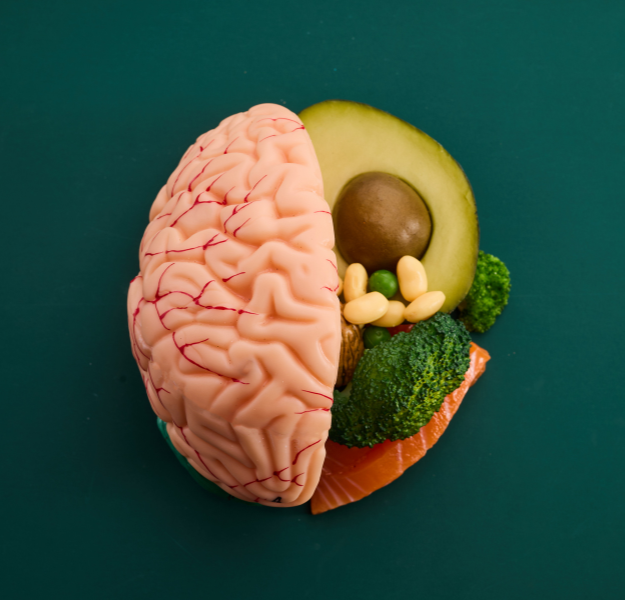
In modern psychiatry, we’ve made extraordinary strides in understanding brain function and developing advanced treatments - from SSRIs and SNRIs to ketamine infusions and transcranial magnetic stimulation (TMS). Yet, for all our innovation, we often overlook something profoundly simple and biological: the patient’s nutritional state.
America is a nation of abundance, but not of balance. The U.S. population shows widespread nutritional deficiencies - not only in low-income areas but across every community. Data from the CDC and NHANES consistently reveal suboptimal levels of vitamin D, magnesium, B12, folate, zinc, omega-3 fatty acids, and iron. These deficiencies are not trivial; they manifest in neuropsychiatric symptoms that often mimic - or exacerbate - DSM-5 diagnoses such as major depressive disorder, generalized anxiety disorder, ADHD, and even bipolar spectrum conditions.
Most vitamins are ignored, where many patients are told things like, “your vitamin D levels are low, but that is common.” As if the term “deficiency” had no clinical meaning and there is no urgent need for correction. Consider the exception: thiamine deficiency, which is treated as a medical emergency - to prevent Wernicke-Korsakoff syndrome and irreversible dementia - yet we rarely screen for other deficiencies that are equally capable of disrupting brain chemistry.
The field has become accustomed to seeing the mind as something separate from the body - as though neurotransmitters exist in isolation from metabolism, inflammation, and nutrient availability. But serotonin doesn’t appear out of thin air; it’s synthesized from tryptophan, a process dependent on vitamin B6, iron, and folate. Dopamine pathways rely on tyrosine, copper, and vitamin C. Glutamate balance - essential for mood regulation and cognition - is influenced by magnesium and B vitamins.
When these nutrients are deficient, the symptoms can look psychiatric:
These are the same symptoms that fill our intake forms every day.
The term treatment-resistant depression has become a catch-all for patients who don’t respond to medications. The reflexive next steps - polypharmacy, TMS, ketamine - can be life-changing for some, but they also represent the top of the therapeutic pyramid. What if part of the “resistance” is biological - rooted in an unaddressed deficiency or metabolic dysfunction that no amount of receptor targeting can fix?
Several studies have shown enhanced antidepressant response when nutritional deficits are corrected. For instance:
Yet these findings remain at the margins of psychiatric training and practice - often relegated to “integrative” or “functional” specialists rather than the psychiatric mainstream.
It’s time for psychiatry to reclaim its medical roots. We are physicians of the brain - not merely prescribers of psychotropics. Psychiatry should include a systematic review of nutrition, endocrine function, and inflammation. This doesn’t mean replacing medication; it means optimizing the foundation upon which medications act.
Imagine how differently we might practice if nutritional and metabolic panels were as routine as rating scales like the PHQ-9. If before prescribing a third-line antidepressant, we checked vitamin D, methylmalonic acid, homocysteine, iron studies, and magnesium.
This approach doesn’t just enhance outcomes - it reframes the patient narrative. It acknowledges that “mental illness” can arise from physiological imbalance, not moral failure or purely psychological dysfunction.
Psychiatry is evolving - but evolution requires integration, not abandonment. As we embrace cutting-edge therapies like ketamine and TMS, we should also revisit the fundamentals of biochemistry and physiology. The mind cannot heal without the body.
A more medical psychiatry - one that investigates and corrects nutritional deficiencies - offers a path toward true precision mental health care.
Because sometimes, the key to a treatment-resistant brain isn’t adding another molecule - it’s identifying and replacing a missing nutrient.